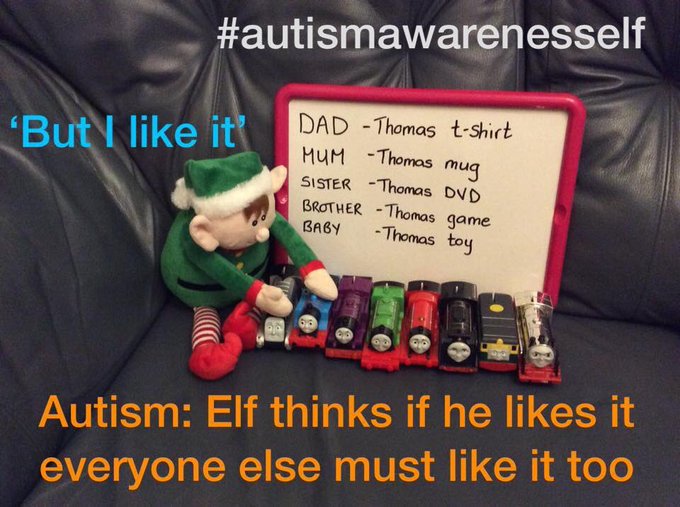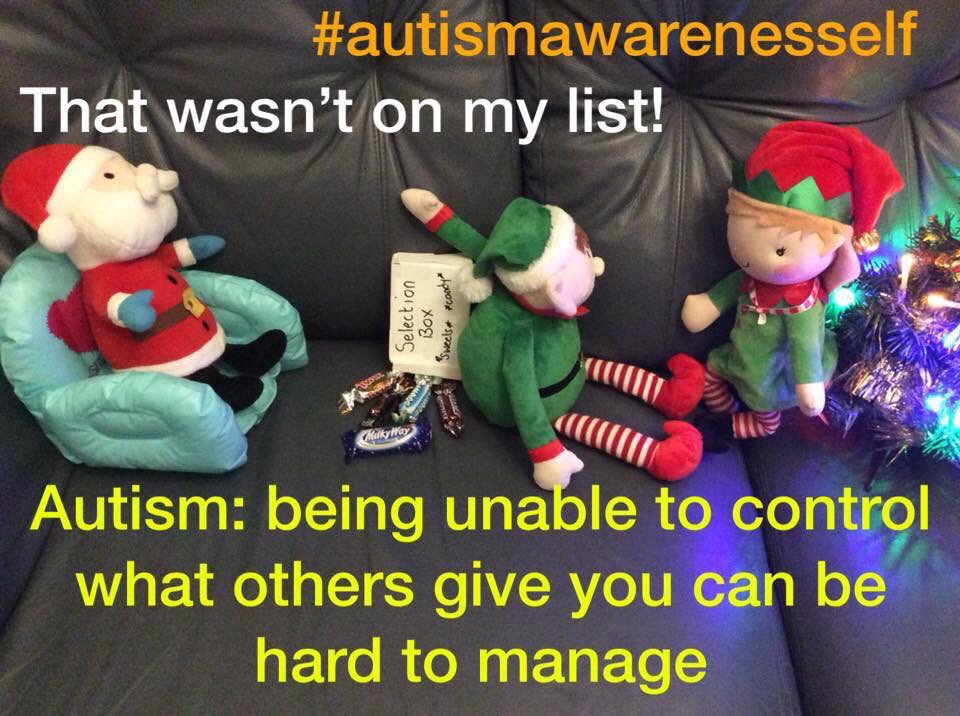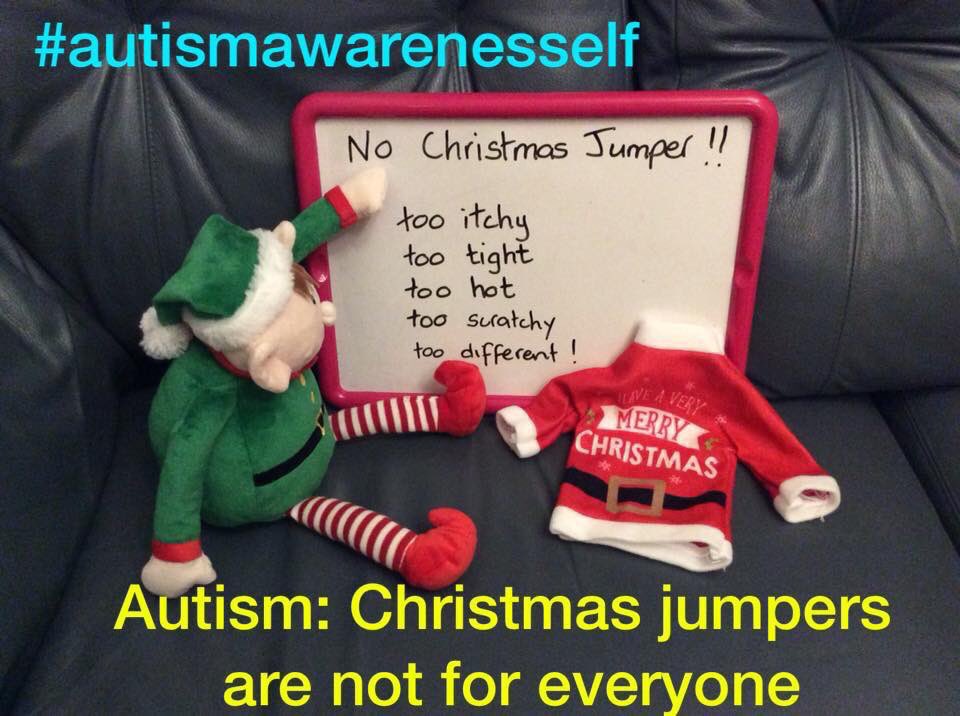
Miriam Gwynne, a mother of 11-year-old twins, from Hamilton in Scotland, is running the #autismawarenesself online campaign throughout December to increase understanding and support for children and young people with autism, many of whom struggle with the demands of Christmas.
After the success of the campaign last year, she has reinstated it on Twitter (@MiriamGwynne) and Facebook (https://www.facebook.com/Faithmummy1/).
Ms Gwynne said the campaign had been picked up by schools and nurseries as well as parents and children. It aims to highlight a range of issues faced by people with autism at Christmas, including:
- changes to routine
- unfamiliar lights and sounds
- pressure to perform, e.g. Nativity plays
- pressure to socialise
- unfamiliar foods
Elf on the Shelf was dreamt up by American teacher and mum Chanda Bell, who revived her own childhood family tradition with her mother Carol Aebersold, and which has become a global phenomenon. In 2004, the two wrote a picture book about one of Santa's 'scout' elves, who hides in people's homes and reports back to Father Christmas on the day's events each night. During advent, after children have gone to bed, parents find a new place for the elf (a toy which comes with the book) to perch.
Both Ms Gwynne’s children have autism, as does her husband. She said she was moved to create the campaign last year at her daughter’s suggestion.
Ms Gwynne told Nursery World, ‘She could see the "Elf on the Shelf" but she wasn’t keen on it. It was unpredictable and she couldn’t understand why it was naughty when she knew not to be. People with autism often have very black and white thinking.
'But she wanted an elf and we decided we wanted to do something with it. We wanted to do something based on her experiences but not focused on her or about her. She’s very aware of how different she can be and she wanted an unobtrusive and easy way to show people what she struggles with.’
Her daughter suggested a variety of images using the elf which depicted the challenges Christmas poses for autistic people. Ms Gwynne then wrote descriptions to accompany each one.
‘Our aim was to let her see she wasn’t alone in this, but also to spread some awareness that simple things can make a big difference and maybe there could be a bit less judgement of people who find Christmas and December more difficult than others.'

'Day 18 of #autismawarenesself and Elf is finding it very difficult to put himself in others shoes and imagine what they might want. Specific requests really help autistic people or you may get something they love instead.' Miriam Gwynne (@GwynneMiriam)
The images are mostly based on real-life situations Ms Gwynne’s children have experienced, although Ms Gwynne admitted there were some which were more difficult to represent.
‘We struggled to put a few of them into pictures. For example, my daughter met Santa at the school Christmas fair and she couldn’t understand why she was given a selection box because it hadn’t been on her list. People seeing her trying to hand it back might have thought she was being rude but she wasn’t.

‘The response has been tremendous,' said Ms Gwynne. 'It has really resonated with people. Initially it was just a way to give my daughter a means to communicate, as she has selective mutism and sometimes struggles with verbal communication, but it has really taken on a life of its own. It’s helped me understand her better, and I hope that it will help empower people to see it’s really quite easy to help.’

'Day 13 of #autismawarenesself and Elf isn’t at all keen on Christmas jumper day. Sensory issues and struggles with change mean Christmas jumpers are not for everyone.'Miriam Gwynne (@GwynneMiriam)
- Miriam Gwynne blogs at https://faithmummy.wordpress.com/









